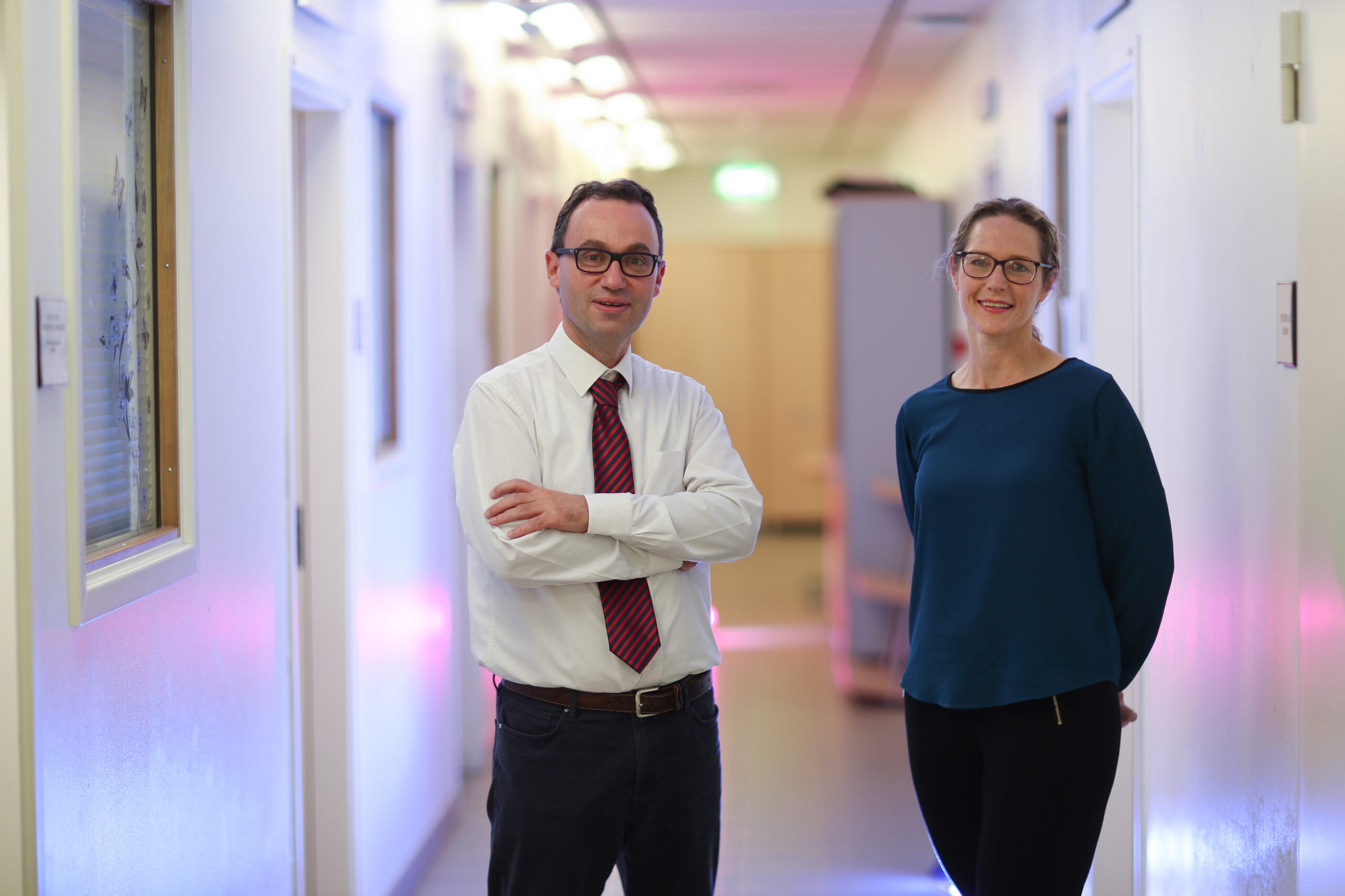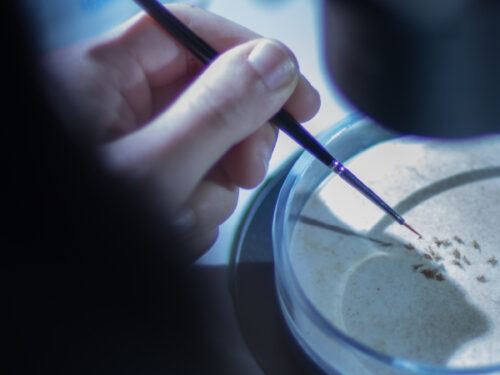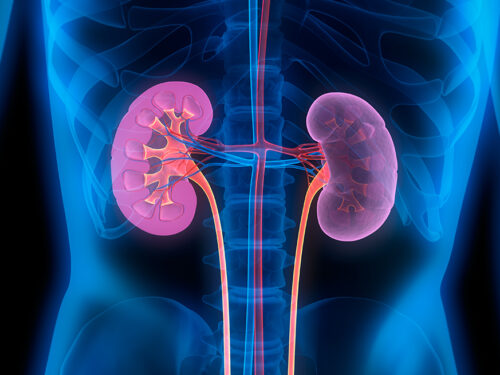
Dr. Pierre Ellul and Dr. Martina Sciberras
Combatting Coeliac Disease Through Research
Ongoing research at the University of Malta aims to find the prevalence of coeliac disease across the Maltese Islands and to study the microbiota composition of coeliac patients.
Launched through funding received via RIDT from Dr Schaer – the company behind a huge range of gluten-free products – the project will study data from coeliac disease patients, which may help to develop a better understanding of this disease.
An increasingly prevalent disease
Coeliac disease is a growing problem worldwide. This chronic, multiple-organ autoimmune disease affects the small intestine in genetically predisposed individuals exposed to an environmental trigger: gluten.
The rising number of coeliac disease cases is attributable to better diagnostic tools, greater awareness of the condition and screening of at-risk groups – although coeliac disease still represents a statistical iceberg, with far more undiagnosed than diagnosed cases from country to country. In fact, most cases may remain undetected without active screening.
Even patients who considered themselves asymptomatic at the time of diagnosis have found that a long-term, strict gluten-free diet leads to improvement in their quality of life. However, there is still scope for finding new scientific pathways to therapeutically treat coeliac disease.
A spotlight on coeliac disease across Malta
The project, named The Prevalence and Faecal Microbiome of Coeliac Disease in the Maltese Islands, aims to show how commonplace coeliac disease is across the Maltese population.
It also builds on other global research that has studied the role of the human microbiome in healthy and disease states, and the ability to utilise that data to create new treatments. This found that the interaction co-evolves between the microbiome and the host immune systems, affecting both. Ongoing research continues to answer questions about how human genomes and gut microbiomes influence the metabolic state of an individual based on their diet, lifestyle and gut microbial interactions, known as their metabolic phenotype.
Through analysis of the faecal microbiota composition of newly diagnosed coeliac disease patients and comparing it to healthy controls, the project hopes to identify differences between these ecosystems and the key role they play in healthy and disease states.
As a secondary objective, the research will also examine the prevalence in Malta of Irritable Bowel Syndrome (IBS), which is a group of chronic functional bowel disorders where no clear structural or biochemical cause is found on investigation and, like coeliac disease, can have significant impact on quality of life.
Part of a growing global research community
Conducted in the Faculty of Medicine and Surgery at the University of Malta, the project is the PhD research of Dr Martina Sciberras, a gastroenterologist in Mater Dei Hospital. Prof Pierre Ellul, Head of the Division of Gastroenterology at Mater Dei Hospital, supervises the research, as does Prof Andre Franke from the Institute of Clinical Molecular Biology in Kiel, Germany.
Having begun her research in October 2020 on a part-time basis, Dr Sciberras plans to complete it – including data collection, microbiota analysis and thesis – within the next three years.
Beyond investing in the bright future of a Maltese researcher and encouraging more female participation in the field of academia and gastroenterology, the project will also birth unique research skills in biomedicine and faecal microbiome analysis. These will increase opportunities and cooperation between Malta and other international research consortia, while contributing to a global effort to better understand coeliac disease.
A process of data collection and analysis
In coeliac disease, multiple pathways involving the innate and adaptive immune system lead to the generation of a cytotoxic reaction and the production of antibodies. Diagnosis involves testing for autoantibodies and confirming with histology from intestinal biopsies of the small intestine via endoscopy.
The project uses a point-of care testing kit, which shows tissue transglutaminase antibodies with a simple pinprick. To date, the research has focused upon literature review and finding the data available on this topic and its relevance to the Maltese Islands, as well as researching the kits used in the study, particularly those used to test asymptomatic people with coeliac disease.
To analyse the faecal microbiota composition of patients, data collection of stool samples from both newly diagnosed coeliac disease patients and healthy controls is ongoing, with more than 35 samples already collected alongside participants’ questionnaires. Although the COVID-19 pandemic impacted both sample collection and patient willingness to take part, reduced restrictions now allow the project’s data collection phase to build momentum.
In fact, the initial screening of asymptomatic patients has already led to the diagnosis of three patients with coeliac disease, who have since followed a gluten-free diet to combat it.
Vital funding to beat coeliac disease
This research is possible through funding received through RIDT from the renowned producer of gluten-free foods, Dr Schaer, as well as university funding received via the TESS scholarship unit.
Besides leading to an increased awareness of coeliac disease across Malta in both healthcare professionals and the public, the project will also detect the disease in asymptomatic individuals – and help prevent possible complications.
Publications from the research will likewise place Malta at the frontline of research and development initiatives for local patients, while it channels financial support from sponsors into tangible discoveries about the characteristics of coeliac disease and potential future therapies for patients the world over.
This project has been fully funded through a generous donation from Dr Schaer.





